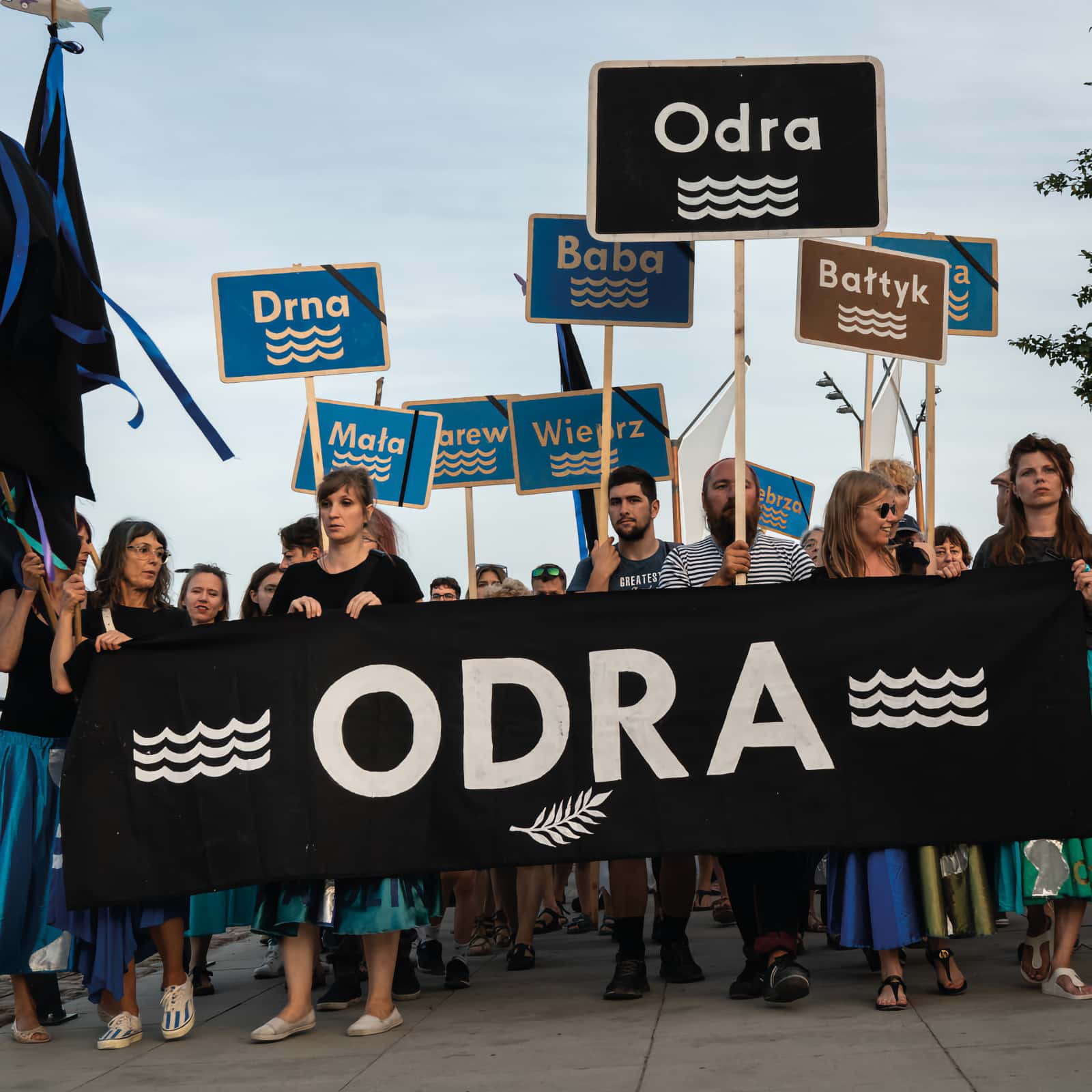
A Way of Negotiating the Future

Downloads
DOI:
https://doi.org/10.58981/bluepapers.2022.1.08Published
Issue
Section
License
Copyright (c) 2022 Joanna Tusznio, Marianna Strzelecka

This work is licensed under a Creative Commons Attribution 4.0 International License.
How to Cite
Abstract
Considering three examples of rivers in Europe, this article examines how ecological grief can trigger environmental discourses and awareness concerning the UN SDGs. We define heritage as a cultural practice involved in constructing and negotiating a range of values and understandings through engagement between people, things and places. Among humans, nature can be mourned and the emotions of loss, sadness and yearning can inspire activism. Organizing funerals for nature has become an important element of mourning the death of “loved ones” and fighting for their revival, thus drawing the attention of the wider society to ecological problems. In discourses seen as central to attracting support and making changes real, nature is represented using powerful metaphors of life and death. We argue that the symbolic mourning for rivers creates a space to collectively express ecological grief, loss and other feelings in a way that supports struggles for ecological justice. In shared loss, there could be restoration.
References
Frantzen, Mikkel K. 2021. ‘‘‘A Grief More Deep than Me’ – on Ecological Grief.’’ In Cultural, Existential and Phenomenological Dimensions of Grief Experience, edited by Allan Køster and Ester H. Kofod. London: Routledge.
Glenn, Albrecht, Gina-Maree Sartore, Linda Connor, Nick Higginbotham, Sonia Freeman, Brian Kelly, Helen Stain, Anne Tonna, and Georgia Pollard. 2007. “Solastalgia: The Distress Caused by Environmental Change.” Australian Psychiatry 15, no. 1: S95–S98.
Harper, Krista. 2005. “‘Wild Capitalism’ and ‘Ecocolonialism’: A Tale of Two Rivers.” Anthropology Department Faculty Publication Series. Paper 72. University of Massachusetts. http://scholarworks.umass.edu/anthro_faculty_pubs/72
Harvey , David C. 2001. “Heritage Pasts and Heritage Presents: Temporality, Meaning and the Scope of Heritage Studies.” International Journal of Heritage Studies 7, no. 4: 319–38.
Koening, Robert. 2000. “Wildlife Deaths Are a Grim Wake-Up Call in Eastern Europe.” Science 287, no. 5459: 1737–38.
Lazar, Imre, and Emese Kiss. 2002. “Gold, Cyanide, and Fish in the River of Life & Death.” In Just Ecological Integrity: The Ethics of Maintaining Planetary Life, edited by Peter Miller and Laura Westra. Washington, DC: Rowman & Littlefield Publishers.
Michnik, Antoni. 2022. “Funeral Ecopoetics and the Sounds of the Anthropocene – Around the ‘Funeral March for the Odra River.’” Dialog, 2 September, 2022.
PAN. 2022. “Communication of Polish Academy of Sciences on the Oder river catastrophe and anthropogenic climate change.” Announcement in July 2022. https://informacje.pan.pl/17-pan-poleca/3671-katastrofa-na-odrze-geneza-terazniejszosczalecenia-na-przyszlosc (in Polish).
WWF. 2022. “Expert Analysis of the Governmental Preliminary Report on the Oder River Situation.” https://www.wwf.pl/sites/default/files/inline-files/Analiza%20Ekspercka-Odra-PE%C5%81NA%20WERSJA.pdf (in Polish).


